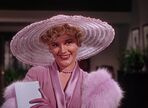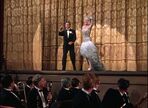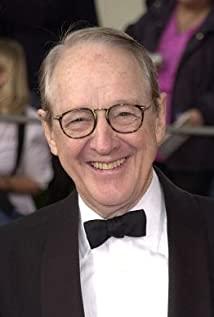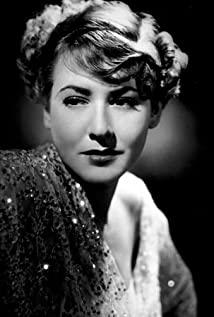have been molested by telecommunications some time ago. Even though the old man's life is very smooth, he can't open the Internet in the morning. The only way to find the stock in the computer to adjust, there is a large package of Dai Jinhua's lecture recordings, when I open it, my hand will shake unconsciously, as if it is full of dust.
The introduction part talks about the development history of feature films. "Films have an inherent copper smell and a mechanical nature. The difference from traditional art is that all elements of modern industry are rejected by traditional art." She repeated these sentences. It's a typical teacher's style. Good students should take notes. From the invention of the camera and playback machine by the Lumiere brothers to the replacement of sound movies by silent movies, it is but a process. We stand in the position of winners, but finally we cannot understand the sadness of being eliminated. Teacher Dai knows this simply, It may not be understood. I recommended the movie "Singing in the Rain". After that, how many days of smooth Internet have passed. I resolutely abandoned the boring lecture recordings in the flood of garbage. There is only one "Singing in the Rain" downloaded on impulse. "Stayed in the E disk, and occasionally when I was looking for cartoons, I would glance at it and find more ashes.
Then, I disconnected from the Internet again, and finally opened "Singing in the Rain"...
Warner's first sound film "Jazz Singer" was among the top 8 Hollywood studios. "Singing in the Rain" is based on the Hollywood in the 1920s, and it reproduces the birth process of sound films with a little irony but joy. In the film, the people of the brilliant film company sneered at the sound film at first, thinking that "this is just a toy, it's too funny", "vulgar", "they will accompany it miserably and have no future" and so on, until "Jazz Song". "King" was a great success, and all the film companies finally had to admit that the era of movies with sound has come.
In the accidental encounter at the beginning of the film, although Casey was just angry, he had already revealed the dilemma of silent films, "Movies are all the same." For Tang's new film, as soon as he said the role he was going to play, his friend Cosmo who had the same hunch guessed the plot. Speaking of Cosmo, the part that belongs to him begins with a profound sentence, "Actors must realize that no matter what happens, they must continue to act." Later, as a small partner, there was a long-length song and dance show, and the pig Foot Tang was only watching from the sidelines, and I have to say that musicals are really extravagant. I like the elegance of his upside-down hat, the lightness of his body as light as a swallow flying over the eaves, and the funnyness of being able to dance with the help of any objects around him... That part of the performance was so exciting that it was exhausting, and now I am afraid that few actors need such a long time to dance. Jump and jump.
What impressed me the most was the confession, when everything is fake, the emotion is more unique than the only one.
The beautiful sunset is a set, the mist from the distant mountains comes from the aerosol on the right side of the stage, the colorful lights in the garden, the stars under the night are the fifty kilowatt lights under the ceiling, and the summer breeze comes from the huge blower ...a movie set can create any romance you want, because often you, the audience, only see through the lens what you want to see, however, Tang creates an exposed stage and invites her princess to come on the scene. On "The Balcony in the Violet Moonlight", the machine space could not contain the hot emotions. Both Casey and the audience were moved. She asked, "Can we talk in such a romantic atmosphere?" Singing. Ah, this is the most natural song and dance I've ever seen. When everything is in order, singing and dancing is just a natural expression, which is much better than the sudden joy of some musicals.
Because it is a silent film, when Tang and Linna have lingering expressions but the dialogue is completely irrelevant to the plot, the director still applauds behind the scenes. However, the era of the sound film came, and the trouble of making films followed. Linna's pronunciation flaws were exposed, and the audience couldn't accept that a goddess of the silent film era turned into a crow with a voice like a man's neck. This is one of them. In addition, the huge microphone has become nowhere to be placed, so there will be a series of jokes later, the actors can not get used to acting in front of Mai, the sound is loud and sometimes small, the sound and picture are out of alignment, etc., a romantic costume idol drama It turned into a laugh-out-loud comedy. Actors and bosses, facing disappointed audiences, can only admit that such a thin story is simply not suitable for the sound era. After that, the joyful trio came up with the idea of enriching the film with singing and dancing. "Dueling Knight" was transformed into "Singing and Dancing Knight", and Kathy sang for Lina (the beginning of the dubbing era...) and achieved unprecedented success. . Jim Kelly is brilliant and colorful (the colors are so dazzling) The musical career begins... In the
end, the crow is finally disliked by the audience, and the screen couple in the musical age is born...
"The sound film is like a freak", "But yes , we should create this kind of freak." When the film company boss in the play said this, I copied the few sentences repeated by Mr. Dai, thinking about it, it is the innate movie, or the human Innate?
View more about Singin' in the Rain reviews










